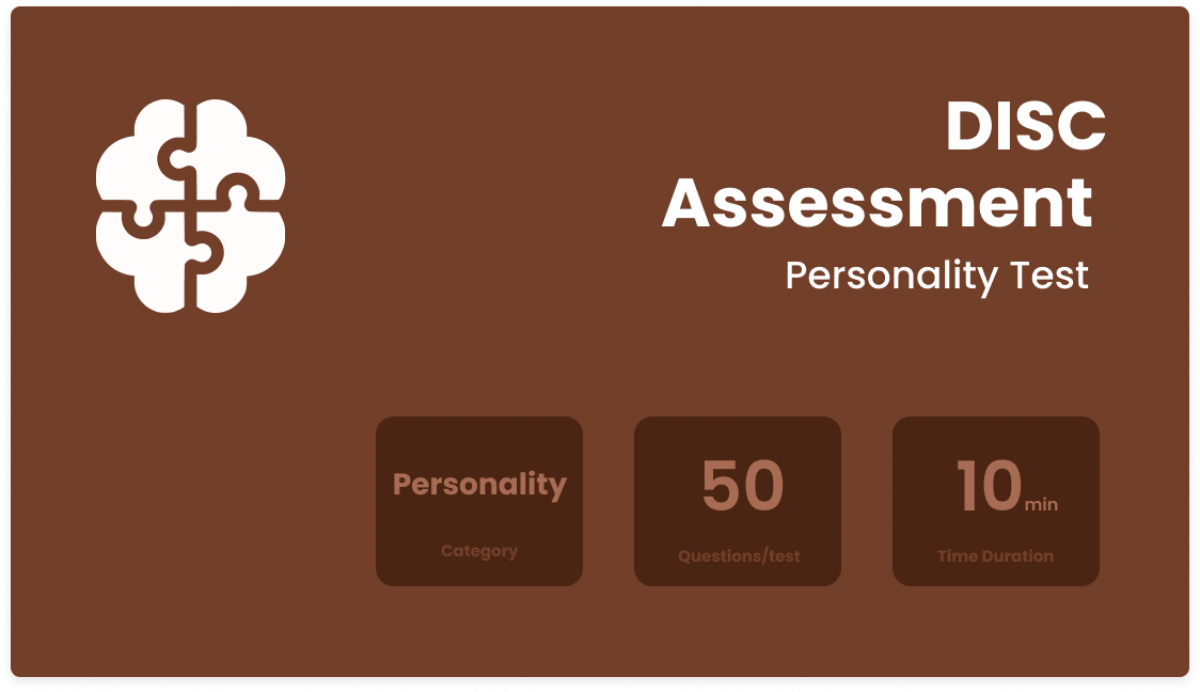Help Desk
DISC Assessment

About
The DISC assessments are based on the DISC emotional and behavioral theory proposed in the 1920s by William Marston, developed exclusively for Industrial assessments. It assesses one’s personality in 4 behavioral traits.
- Dominance
- Inducement
- Steadiness
- Compliance
Theory
According to this theory, people express their emotions in 4 base traits. Dominance is characterized by using force to overcome obstacles and resistance in the environment. Inducement involves using charm in order to deal with obstacles. Steadiness is the tendency to warm and voluntary acceptance of requests or giving in social circumstances. Compliance is the tendency to adjust to superior forces.
Guide for using
The best (and probably only place) to use the results of the test is in tailoring the interview for a particular candidate. An additional place you can consider utilizing this test is for improving the cultural, temperamental, and personal diversity of your company.
The last thing you must be doing is shortlisting based on one’s results on personality tests. Personality tests will never be a predictor of job success or even the skills necessary for a job. Research on the usage of personality tests for selecting candidates is shoddy at best.
Type - D
Type D people are characterized by their
- Confidence
- Outspokenness
- Focus on Accomplishment
- Focus on bottom-line
- Using force to overcome obstacles and resistances in the environment.
- Occasional lack of empathy and patience
Type - I
Type I people are characterized by their
- Openness
- Optimism and Energy
- Emphasis on relationships
- Using charm in order to deal with obstacles.
- Occasionally impulsive
Type - S
Type S people are characterized by their
- Reliability
- Emphasis on cooperation
- Tendency to be warm
- Voluntary acceptance of requests
- Giving in social circumstances.
- Tendency to be change-averse
Type - C
Type C people are characterized by their
- Emphasis on quality, accuracy, and expertise
- Analytical and objectivity
- Pursuit of perfection
- Diplomacy
Supported by:
